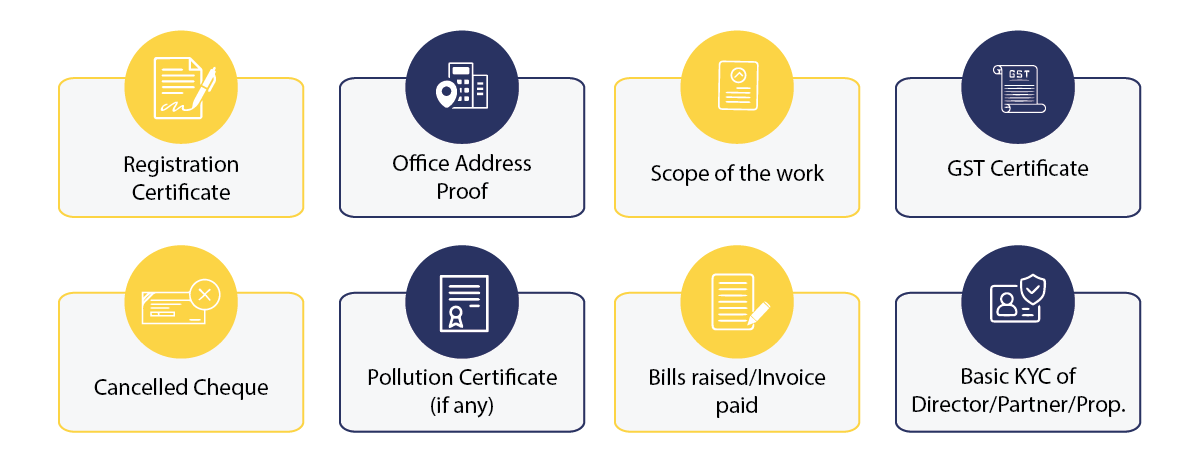ISO 14001 Certification
Customer is the king, and let your business be the preferred choice of their highness. How to make that a reality and make your business grow exponentially? The answer is simple, by gaining trust. The best way to portray the worthiness of the business and the efficiency of the product or services and showcase you possess quality on par with the market.
How to Start ISO 14001 Certification



What Is An ISMS ISO 14001
Large organizations often need a standard to optimize their environmental performance to enhance their reputation and foster growth. This is where ISO 14001:2015 plays a key role. ISO 14001:2015 is a widely recognized standard used in 171 countries. It provides a clear framework for organizations to systematically address their environmental responsibilities.
ISO 14001:2015 enables organizations to fine-tune their environmental management systems to achieve desired outcomes, benefiting the organization, the environment, and its stakeholders. The advantages of ISO 14001 certification are comparable to those of zero-defect policies or Six Sigma management. This article will explore key aspects of ISO 14001 certification and its benefits.
In Short, Iso 14001 Certification Provides for,
- Continuous monitoring of potential environmental risks
- Implementation of suitable corrective actions
- Fulfillment of compliance obligations
- Enhancement of environmental performance
In This Article
Outlining the Applicability of ISO 14001
- What aspects of Environmental Management Systems (EMS) does the ISO 14001 family cover?
- What is the Environmental Management System (EMS)?
- Key Benefits of ISO 14001 Certification
- Conclusion
- Frequently Asked Questions
Outlining the Applicability of Iso 14001 Certification
What Aspects of Ems Does the Iso 14001 Family Cover?
The ISO 14000 family of standards is developed by technical committees and sub-committees of ISO. ISO 14001 specifically outlines the requirements for an Environmental Management System (EMS). Other standards within the family focus on key areas such as auditing, labeling, correspondence, life cycle analysis, and addressing environmental issues like climate change and environmental damage.
What Do You Understand About the Environmental Management System?
An Environmental Management System (EMS) is a systematic approach aimed at improving environmental performance, similar to quality or safety management systems. In essence, an EMS helps companies:
- Identify potential inefficiencies and strengths within the system
- Track and monitor significant environmental impacts
- Save costs by enhancing operational efficiency
- Ensure compliance with environmental regulations
- Set a clear path for environmental improvement
Outlining the Key Benefits of Iso 14001 Certification
Cost Savings and Increased Productivity
ISO 14001 offers a clear framework that enables companies to identify potential inefficiencies in their environmental systems. It also extends to managing raw materials and waste, helping to drive cost savings. This is one of the significant advantages of ISO 14001 certification.
Increased Sales
ISO 14001 certification enhances an organization’s market value by building trust among potential customers. It assures customers that the company is adhering to an eco-friendly framework in its operations, which can lead to increased sales.
Stronger Supply Chain
ISO 14001 certification facilitates better interactions with suppliers and vendors, improving efficiency and productivity. A strong supply chain is a key benefit of ISO 14001 certification.
More Investment Opportunities
As environmental concerns become a primary focus for consumers and organizations alike, investors are increasingly prioritizing a company’s environmental performance in their decision-making process. ISO 14001 certification can attract potential investors by demonstrating your company’s commitment to managing environmental performance, with key environmental indicators included in business reviews.
Service and Product Innovations
Complying with ISO 14001 standards opens new avenues for business growth and innovation, allowing companies to explore untapped areas with significant potential for expansion.
Documents Required for Iso 14001:2015 Registration

Conclusion
While compliance with the ISO 14001 standard is not mandatory, organizations can adopt its framework to improve their environmental performance. ISO-certified companies are more likely to attract a stronger customer base compared to non-certified ones. Additionally, it fosters better collaboration between suppliers and other stakeholders. If you’d like to learn more about the benefits of ISO 14001 certification, feel free to reach out. We would be happy to assist you!
FAQ’s
